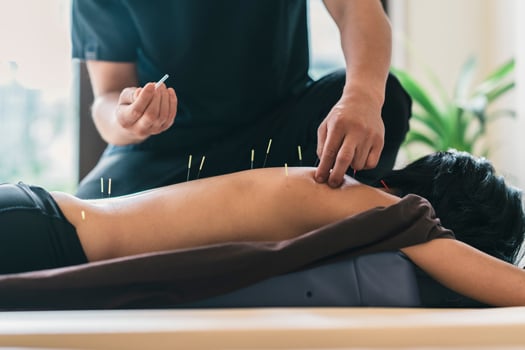
A herniated disc occurs when the soft center of a spinal disc bulges outwards and presses against nearby nerves. This can cause pain and discomfort as well as numbness, weakness, or tingling sensations in the affected areas. Herniated discs can occur due to aging, injuries, or degenerative conditions. Traditional treatment options for this condition include medication, physical therapy, and back surgery such as a discectomy or less invasive microdiscectomy. However, some individuals may seek alternative therapies such as acupuncture to alleviate their symptoms. This article will explore the effectiveness of acupuncture for herniated discs and explain what to expect during an acupuncture session.
Studies on Acupuncture and Herniated Discs
Several studies have examined the effectiveness of acupuncture for treating herniated discs. A review of 13 randomized controlled trials published in the journal Pain Medicine found acupuncture was more effective in reducing pain and disability in lumbar disc herniation patients than no treatment or sham acupuncture. A separate study published in the journal Medicine found acupuncture was more effective than traditional physical therapy at reducing pain and improving functional mobility in people with cervical disc herniation.
How Acupuncture Works for Herniated Discs
Acupuncture involves the insertion of thin needles into specific points on the body known as acupoints. The acupuncturist selects these points based on the individual's symptoms and diagnosis. The needles stimulate the nervous system and trigger the release of natural pain-relieving chemicals such as endorphins and enkephalins. Some acupuncturists also use electro-acupuncture, which involves passing a small electrical current through the needles, which may further stimulate the release of endorphins and reduce pain.
Acupuncture also increases blood flow and relaxes the muscles around the affected area, which can promote healing. This can be particularly beneficial for people who experience muscle spasms or tightness due to their herniated discs.
Acupuncture is often used in conjunction with other therapies, such as physical therapy and massage, to address the root cause of the herniated disc. While acupuncture can relieve pain and inflammation, physical therapy can strengthen the muscles surrounding the affected area, increase flexibility, and prevent future injury.
What to Expect during an Acupuncture Session
During an acupuncture session for a herniated disc, the acupuncturist will first perform a comprehensive evaluation to determine the individual's symptoms and medical history. The acupuncturist will also perform a physical exam to assess the location and severity of the herniated disc.
The acupuncturist will then insert the needles into the acupoints, which may be located near the affected area or in other parts of the body. The needles are typically left in place for 15–30 minutes while the patient rests comfortably. The acupuncturist may also use electrical stimulation or heat therapy to enhance the effects of the treatment.
Acupuncture is generally not painful, although some individuals may feel a slight prick or tingling sensation when the needles are inserted. After treatment, patients may feel some immediate relief from their symptoms, although it may take several treatments before they notice significant improvement.
Safety Considerations for Acupuncture
Acupuncture is generally considered safe when performed by a licensed and trained acupuncturist. However, there are some potential risks associated with the procedure, including bleeding, infection, and nerve damage. It is important to choose a qualified practitioner who follows proper safety procedures and uses sterile needles.
Patients who are pregnant, have a bleeding disorder, or are taking blood-thinning medication should speak with their healthcare providers before undergoing acupuncture treatment. In addition, people who have a fear of needles or a low pain tolerance may not be suitable candidates for this form of treatment.
If you have a herniated disc that is not responding to conservative treatment, a discectomy may be discussed and potentially recommended. Although this is generally a very successful procedure, having a large hole in the outer ring of the disc more than doubles the risk of needing another operation. A new treatment, Barricaid, is a bone-anchored device that closes this hole, and 95 percent of Barricaid patients did not undergo a reoperation due to reherniation in a 2-year study timeframe. This treatment is done immediately following the discectomy—during the same operation—and does not require any additional incisions or time in the hospital.
If you have any questions about the Barricaid treatment, ask your doctor or contact us at 844-288-7474.
For full benefit/risk information, please visit: https://www.barricaid.com/instructions.


Comments